‘Schools must include lessons on slave trade'
Brutal treatment of black people – and Britain’s role in it – can’t be ignored any longer, says head of history at Islington college
Friday, 12th June 2020 — By Calum Fraser
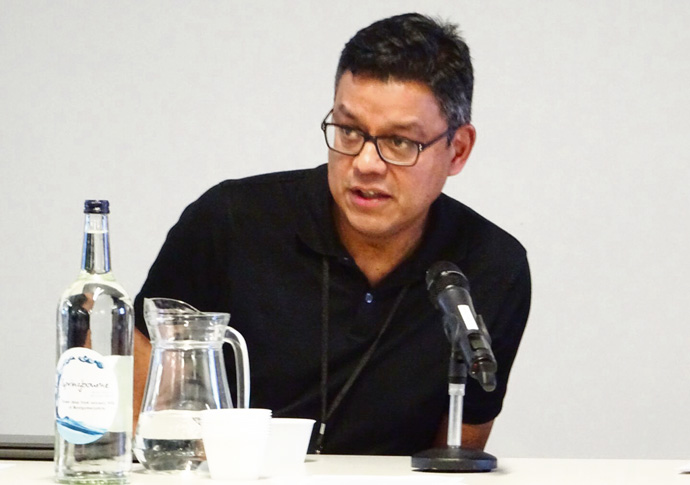
John Siblon: ‘Blacks have been subjugated by brutal white authority for hundreds of years. Only now we have mobile phones to film it and so it is more difficult to ignore’
BLACK history and Britain’s role in the African slave trade “must be mandatory” learning in schools in order to tackle systemic racism in the UK, the head of a history department has argued.
John Siblon, at the City and Islington Sixth Form College in Angel, told the Tribune “too many” believe black people were “invented in Britain” in 1948 on the Empire Windrush ship.
Ignorance of Black, Asian and Minority Ethnic (BAME) history facilitates an “ambivalence” towards the “brutal” treatment of black people at the hands of predominantly white authority figures, he added.
His remarks come in the wake of further Black Lives Matter (BLM) protests in Islington and cities across the world after the death of George Floyd who died after a US police officer knelt on his neck for more than eight minutes last month.
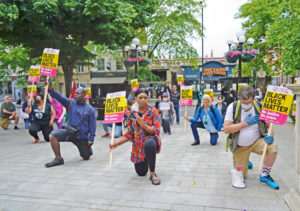
Black Lives Matter protests outside the Town Hall
Mr Siblon, who has taught at the Goswell Road school for more than 15 years, said: “Blacks have been subjugated by brutal white authority for hundreds of years. Only now we have mobile phones to film it and so it is more difficult to ignore.
“If we do not make black history, and the history of how Britain was built on slavery, mandatory, then this brutality will keep being excused and ignored.”
He added: “There is no British history without the empire and slavery. Where do you think tea came from? Or coffee, or sugar or the wool and silk that cities in the UK were built on?
“Too many people think black people were only invented in Britain in 1948 on Empire Windrush. That’s where we are at the moment. There really hasn’t been much progress.”
Black history, including topics such as migration, belonging and empire, can be taught as part of the history and English curriculums in secondary schools, but whether pupils get to study it depends on the exam board and modules chosen by schools.
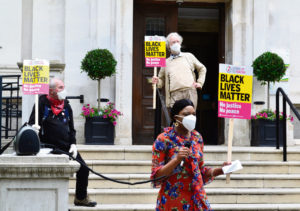
Black history is also studied and celebrated in Black History Month every October.
Mr Siblon, who was born in Britain to parents from the former British colony of Guyana, said: “I hope this [George Floyd’s death] is a defining moment.
“As a teacher of young people you worry for them, there is a lot of gang violence and knife crime in London, there are community centres closed down and the history curriculum itself is very narrow.
“I think young people coming out to protest and show they are aware of the deaths of black men at the hands of police is important. I completely understand them and they have to have a voice in some way. They are not getting the political and historical education they crave in schools so they are finding it elsewhere.”
Campaigners, led by the Black Curriculum group, are collecting signatures for an open letter to be sent this week to the Education Secretary, Gavin Williamson, calling on him to make the teaching of black history compulsory in primary and secondary school and across a range of different subject areas.
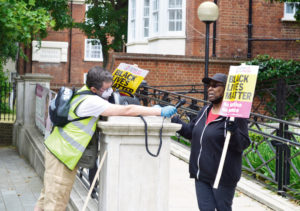
“Despite numerous calls over the years to reform the national curriculum to incorporate black histories, these requests have been denied,” the letter says.
“Learning black history should not be a choice but should be mandatory. Our curriculum should not be reinforcing the message that a sizeable part of the British population are not valued.”
A Department for Education spokeswoman said: “Racism in all its forms is abhorrent and has no place in our society. Schools already play a significant role in teaching children about the importance of having respect and tolerance for all cultures.
“Black history is an important topic which schools can teach to children of all ages as part of the history curriculum.
“Schools can utilise resources from a range of organisations and sources to support teaching black history.”
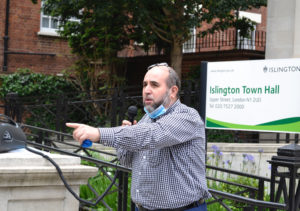
Islington’s education chief Cllr Kaya Comer-Schwartz said: “Systemic racial injustice and discrimination has plagued black communities across the world for centuries.
“As we know, and have seen amplified in recent weeks, this is an issue which is still prevalent in the UK, including in Islington. Unfortunately, the national curriculum doesn’t cover the long history of black struggle in this country, nor Britain’s role in slavery.
“Open, inclusive education creates open, inclusive minds and I am immensely proud that in 2015, Islington Council adopted the ‘All World History, All Year Round’ approach to teaching history within schools, ensuring black history isn’t just for one month of the year.”